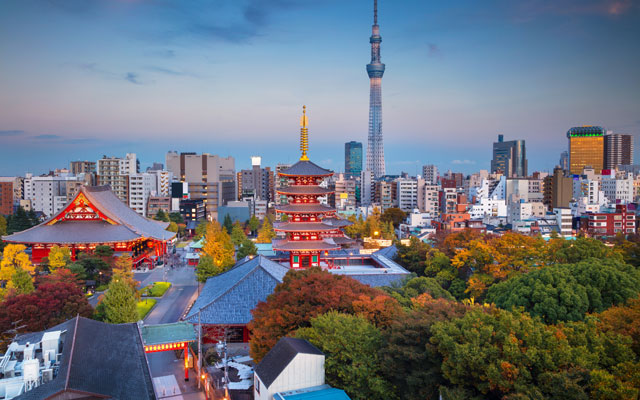Aside from massive events, Tokyo needs to fill certain gaps to ensure continued success
Tokyo hopes to attract more association meetings from 2018 after securing the BestCities’ Global Forum in December 2017, the second of its kind to be held in one of the alliance’s 12-member destinations.
 Designed to showcase Tokyo to senior executives of international associations, the forum will feature presentations by association meeting experts and introduce attendees to Tokyo’s top venues. These include the Tokyo International Forum, and its newest meeting space opened in October 2017, the Akasaka InterCity Conference, which has 12 rooms of various sizes.
Designed to showcase Tokyo to senior executives of international associations, the forum will feature presentations by association meeting experts and introduce attendees to Tokyo’s top venues. These include the Tokyo International Forum, and its newest meeting space opened in October 2017, the Akasaka InterCity Conference, which has 12 rooms of various sizes.
Kazuko Toda, director of the business events team at Tokyo Convention & Visitors Bureau (TCVB), said participants would have “the chance to enjoy Japan’s rich and unique culture” while meeting all partner cities in a “stunning location”.
Alongside TCVB’s collaboration with BestCities, which began in 2014 “to maintain exceptional standards in conference, event and association management in order to help clients achieve a meaningful impact”, the Tokyo Metropolitan Government also provides support for association events in its long-term vision, from 2014 to 2024.
“The main focus is on providing financial and in-kind support for large associations to ensure success,” said Toda, pointing out that Tokyo has successfully secured a large number of international association meetings in various fields until 2026. Among them is the 10th International Congress on Industrial Applied Mathematics in 2023, and the 11th Siggraph Asia in 2018.
But while the industry may reap rewards from current efforts to attract these events, convention centres report demand from associations in recent years has been stable.
Etsuko Sato of the public relations department at Tokyo International Forum said that although staff do not count the number of association events separately from business events, they have the impression there has been no big change in the movement of association events in the past few years.
Other event spaces also reported that it was difficult to assess changes in Tokyo’s association meetings business, because they do not separate their events business by category.
Joris Vanzieleghem, director of business development at Destination Asia Japan, said that although Tokyo has been successful in attracting large association business up until 2026, it needs to do more for long-term success.
“There are not enough convention centres in Tokyo,” he stated. “We need to develop venues and five-star hotels; we need to think five or 10 years ahead. Securing a conference with 10,000 attendees alone may kick-start developments and give an energy boost to Tokyo.”
Vanzieleghem added that large events like the 2019 Rugby World Cup and 2020 Olympic and Paralympic Games were important to Tokyo’s future as well. However, he warned that the city needs to fill in the time gaps between such events and be aware of all possible impacts.
“There is a perception that Tokyo is not a place to go in 2020. After the Olympics finishes, there are still four months left in the year. Normally Tokyo can expect to host three or four events within this time span,” he opined. “Cities light up when there is a large event and Tokyo needs that on a quarterly basis.”
Vanzieleghem also suggested a greater need for flexibility from suppliers. Japan’s domestic association events market is vast and proactive, often blocking off hotel space up to five years in advance, which results in hoteliers refusing to give quotes to others for that same space and date. Meanwhile, some hotels refuse to give quotes a year in advance.
That is why he believes that greater cooperation from Japanese partners would also encourage large international associations to bring their events to Tokyo.
Important, too, he added, is the need for Tokyo to really push the city’s characteristics in the marketplace because it can be less aggressive in attracting association business than other types of business events.










